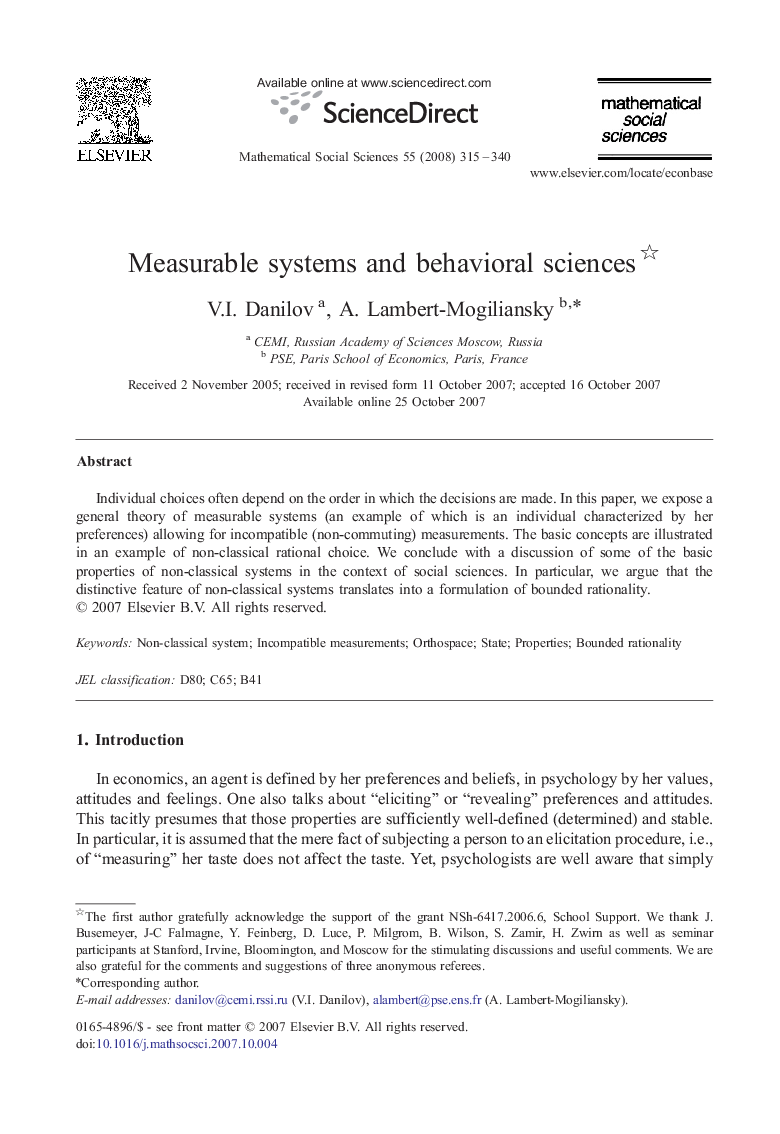| Article ID | Journal | Published Year | Pages | File Type |
|---|---|---|---|---|
| 972110 | Mathematical Social Sciences | 2008 | 26 Pages |
Abstract
Individual choices often depend on the order in which the decisions are made. In this paper, we expose a general theory of measurable systems (an example of which is an individual characterized by her preferences) allowing for incompatible (non-commuting) measurements. The basic concepts are illustrated in an example of non-classical rational choice. We conclude with a discussion of some of the basic properties of non-classical systems in the context of social sciences. In particular, we argue that the distinctive feature of non-classical systems translates into a formulation of bounded rationality.
Keywords
Related Topics
Physical Sciences and Engineering
Mathematics
Applied Mathematics
Authors
V.I. Danilov, A. Lambert-Mogiliansky,
